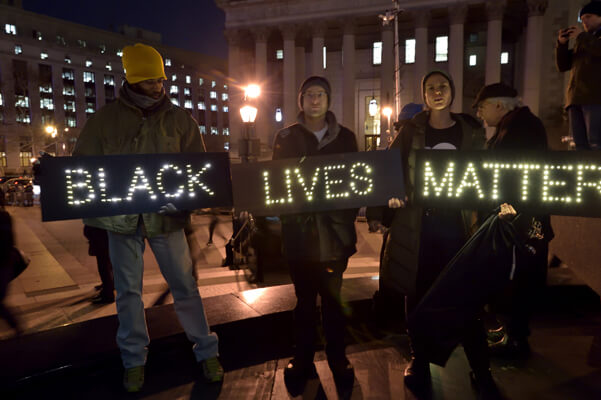It isn’t often a marginalized countercultural journalist such as myself gets to interview America’s Mr. Big. But finally they let me in to see Mr. Zeitgeist. Like most of us, Mr. Zeitgeist comes from immigrant stock. His name combines the German words for “time” (zeit) with “spirit” (geist).” Mr. Zeitgeist is, indeed, the Spirit of Our American Times.
I wanted to talk to Mr. Z about US reparations for slavery. And so, as he ushered me into his tastefully appointed penthouse on Manhattan’s Upper West Side, I hoped that his Gorman prints of Navajo women and African woodcarvings were signs that this Oberlin-educated White dude understood the pain of others. I sat down in a leather armchair, switched on my recorder, and found out.
Snide Lines
Me: Is it true, Mr. Zeitgeist, that you coined the term “Liberty and Justice for All”?
Mr. Zeitgeist: Yes, I’m thinking of turning it into a hashtag. More tweets for our Democracy.
Me: How do you fight to keep this noble ideal alive?
Mr. Zeitgeist: I manufacture trending media opinion. Take the Academy Awards this year. They were far too White, and I made sure the Oscars’ lack of racial diversity was criticized in the media and discussed by leading pundits.
Me: Good work, Mr. Z! Say, I was just enjoying the view from your east window. Were you aware that your apartment building here at 83rd and Central Park West rests on land that was once part of Seneca Village, a haven for freed slaves that began in 1825 and lasted until 1857, when the park was built over it?
Mr. Zeitgeist: Was that on the History Channel?
Me: Earlier, of course, the land belonged to the indigenous Canarsee people.
Mr. Zeitgeist: Ah, New York, New York — a helluva town. What was that Gene Kelly movie?
Me: Further downtown, some 40 slaves were hanged or burned alive for instigating the “New York Conspiracy of 1741.”
Mr. Zeitgeist: It was “On the Town.” Fine old musical about three sailors on leave in NYC! Fun! Of course, it didn’t have Black actors. That’s bad…
Me: Speaking of Liberty and Justice, did you read Ta-Nehisi Coates’ amazing article, “The Case for Reparations,” in the Atlantic? It focuses on the lack of decent housing as only one aspect of the legacy of slavery for African Americans —
Mr. Zeitgeist: I believe justice can be better served by a public discussion on how Patricia Arquette’s Oscar acceptance speech was possibly racist and heterosexist.
Me: Might we also discuss how Mr. Coates has won the 2014 George Polk Award and the 2015 Stowe Prize for Writing to Advance Social Justice?
Mr. Zeitgeist: That’s so unfair. No one gives me prizes for fighting injustice. For example, I made sure that Benedict Cumberbatch was roundly chastised for using the term “colored actors” when describing the lack of diversity in the British film industry. Take that, Bigotry!
Me: Did you know that Representative John Conyers of Michigan has been trying since 1989 to get a reparations bill passed? “HR 40” calls for a simple congressional study of the effects of slavery and its aftermath, along with suggestions for “appropriate remedies.”
Mr. Zeitgeist: Then there was that time I lambasted Ted Danson for showing up at a Friars Club roast of Whoopi Goldberg in blackface. Was his face red! Hard to believe people can be so racist.
Me: You’re interested in fame, Mr. Z? People like Amadou Diallo, Eleanor Bumpurs, Ramarley Graham, Eric Garner, and Akai Gurley weren’t famous until the NYPD killed them. And before them, there were about 4,000 never-famous Black human beings who were hanged and mutilated, from 1877 to 1950, for “crimes” like forgetting to call a White man mister. What, if anything, could this nation do to compensate generations of African Americans?
Mr. Zeitgeist: Goddammit! I forced myself to watch “Twelve Years a Slave.” It made me feel bad — isn’t that reparations enough?
Me: I’m terribly sorry, Mr. Zeitgeist. I had no idea that you also have suffered.
Mr. Zeitgeist: This economy was built on my back, too, you know. Every day, I fight oppression. My people live in constant fear of being called racist. That’s a different kind of stop-and-frisk.
Me: What keeps you strong?
Mr. Zeitgeist: Hollywood. Celebrities are my teachers. From their embarrassing racist gaffes, I learn what not to get caught doing in my own life. To relax, I enjoy a good Shonda Rhimes TV show. Oh, I love how Kerry Washington in “Scandal” wears all that white! It’s like she really sees me. Then there’s jazz at Lincoln Center…
Me: You make me sad, Mr. Zeitgeist. Ta-Nehisi Coates writes a beautiful, award-winning piece on reparations, yet you, the Spirit of Our Times, aren’t interested. Instead, you steep yourself in the entertainment industry.
Mr. Zeitgeist: Okay, whatever. Can I pay this reparations thing online? Has Coates set up some sort of PayPal account?
Me: Reparations isn’t about money at this point, Mr. Z. It’s more about looking at America’s historic imbalance of power. One source in Coates’s article says HR 40 “does not authorize one red cent to anyone.”
Mr. Zeitgeist: Does reparations threaten my social standing? Do I have to give up my job to a person of color?
Me: I hope so.
Mr. Zeitgeist: Are George Clooney or Susan Sarandon talking about this?
Me: Maybe not.
Mr. Zeitgeist: Then color me bored.
Me: Well, if the word “reparations” doesn’t interest you, maybe I could get your attention with the word “genocide.”
Mr. Zeitgeist: Genocide? What genocide? Where do you think we live? Germany?
Me: Well, I see our time is up.
Mr. Zeitgeist: Girlie, you don’t know how right you are.
Susie Day is the author of “Snidelines: Talking Trash to Power,” released last year by Abingdon Square Publishing.


































